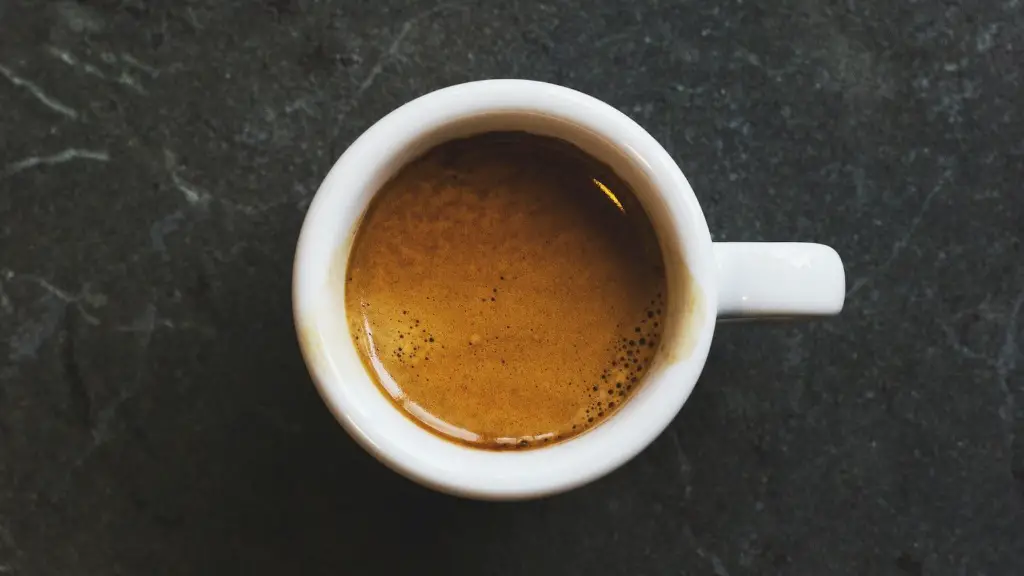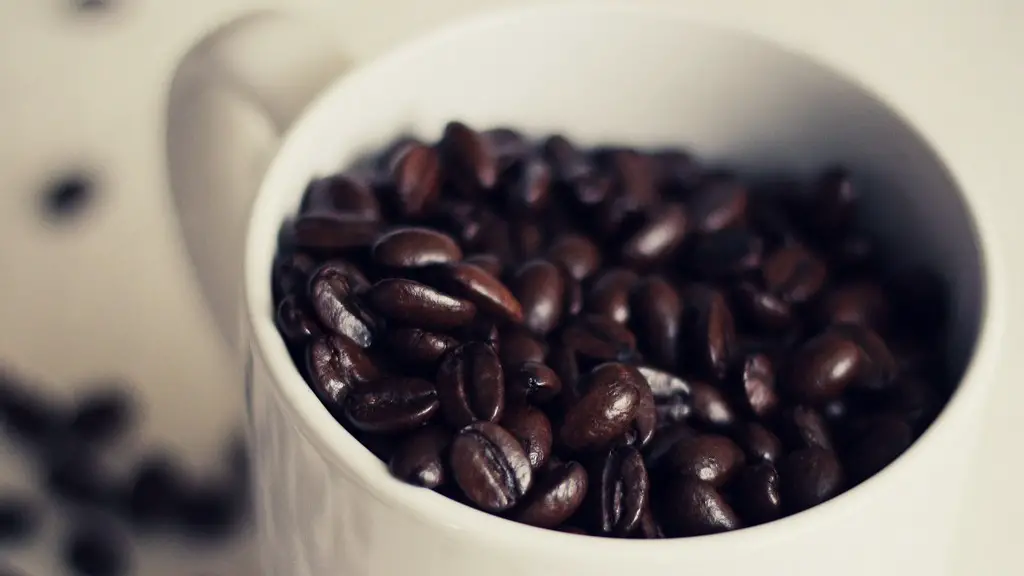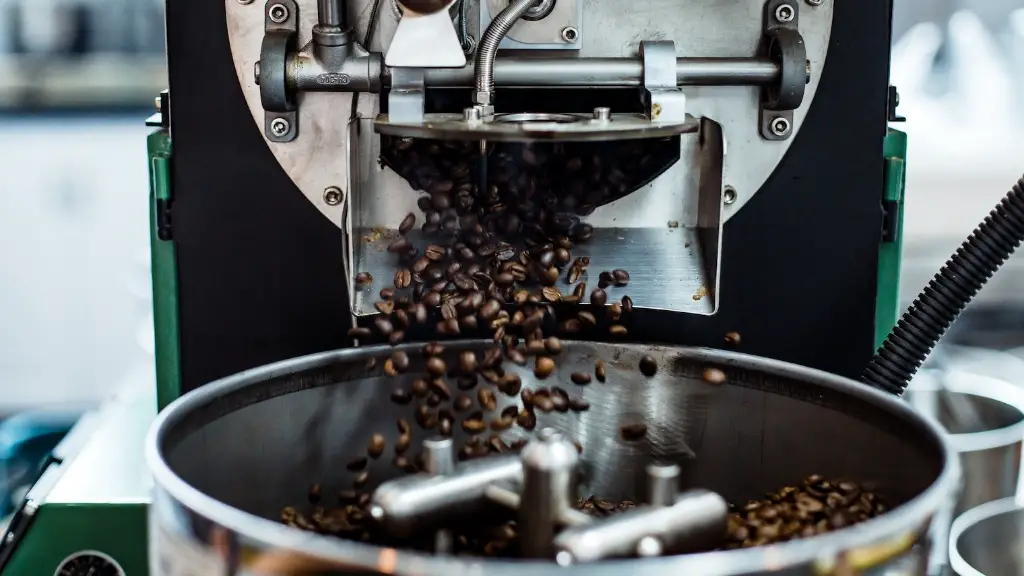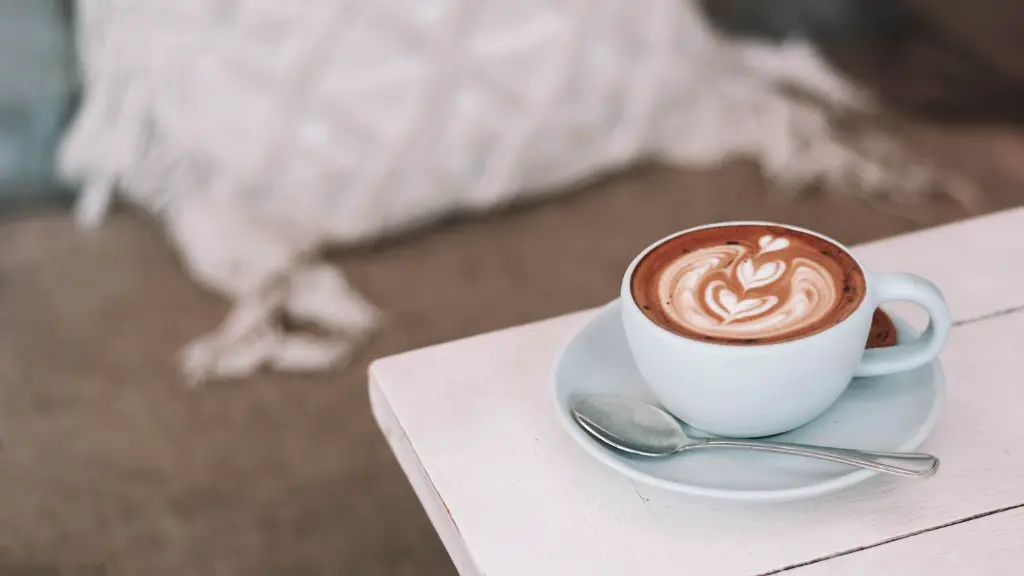Coffee and Circadian Rhythm
Drinking coffee after dinner may have an effect on your circadian rhythm and overall health. According to research, caffeine found in coffee can disrupt the natural sleep-wake cycle of the body. It delays the release of melatonin, a hormone which helps your body regulate its sleep-wake cycle, which can lead to insomnia.
Most of the caffeine found in coffee is metabolized within the first few hours after intake, especially if consumed on an empty stomach. However, there is evidence that some of the caffeine will remain in the body for hours afterwards. That means that drinking coffee late in the evening could lead to disrupted sleep and potential feelings of fatigue during the next day.
A small study by the European College of Neuropsychopharmacology revealed that drinking even a small amount of coffee in the morning may help reduce fatigue during certain tasks. It’s worth noting, however, that drinking late in the evening may have a completely different effect than drinking earlier in the day.
Coffee and Gastrointestinal Problems
Coffee tends to irritate the gastrointestinal tract and can cause constriction in the stomach and the intestines. It can also increase gastric acid secretion and affect the speed of digestion. This can result in stomachaches, nausea, bloating and even heartburn.
At the same time, eating late in the evening is not recommended because food can stay in your stomach for several hours. When combined with coffee, it can have a negative effect on your digestion. That’s why it’s important to plan your dinner and coffee consumption sensibly if you want to avoid digestive upset.
One study from the National Institute of Health concluded that drinking coffee after dinner may edit to gastritis and heartburn. Another study from the American Journal of Gastroenterology found that drinking coffee may lead to gastrointestinal irritation in certain individuals.
Coffee and Acid Reflux
Coffee can also lead to acid reflux, a condition which causes stomach acid to travel up to the throat, potentially leading to inflammation. This is especially common in those who already suffer from gastroesophageal reflux disease.
In such cases, drinking coffee in the evening can worsen the symptoms. A small clinical trial conducted by the International Journal of Gastroenterology revealed that drinking coffee twice per day could lead to more severe acid reflux symptoms.
In these cases, it’s best to consult a medical professional to find out whether drinking coffee after dinner is recommended. Remember that everybody’s digestive system is different, so what works for one person may not work for another.
Coffee and Weight Gain
Using coffee as a late-night snack may also lead to unwanted weight gain. Coffee can temporarily suppress your appetite, leading you to eat less than usual during the day. At the same time, drinking coffee late in the evening can result in the opposite effect – it can stimulate your appetite, leading you to eat more than you would normally.
One meta-analysis by the National Institutes of Health concluded that drinking coffee may lead to weight gain in certain cases, depending on the individual. Another study from the American Journal of Clinical Nutrition revealed that drinking coffee after dinner may also contribute to an increased risk of obesity.
If you’re trying to lose weight, it might be best to avoid coffee in the evening. Instead, you can have a healthy snack like vegetables or fruits, which can help you stay full until bedtime.
Caffeine Intolerance and Sensitivity
Coffee is also not recommended for those with caffeine intolerance or sensitivity. Caffeine, the main active compound in coffee, can cause a wide range of symptoms when consumed in large doses. These can include nervousness, restlessness, shaking, headaches, and even an increased heart rate.
In general, coffee should not be consumed in large doses, especially in the evening. If you have caffeine sensitivity or intolerance, it’s best to limit your intake to one or two cups per day, and drink it in the morning or afternoon.
Coffee intolerance is generally linked to genetics, so if you have a family history of caffeine sensitivity it might be best to avoid coffee altogether. Keep in mind that caffeine can be hidden in other products like energy drinks, tea, chocolate, and soft drinks, so it’s important to read labels before consuming.
Coffee and Overall Health
Overall, drinking coffee after dinner can affect your health in many ways, both positive and negative. If you want to avoid potential digestive and sleep issues, it might be best to limit your coffee intake and avoid consuming it in the evening.
Keep in mind that everyone is different and your body might react differently to coffee than other people. It might be best to consult a medical professional if you want to find out what’s best for your overall health.
Coffee and Hydration
Drinking coffee can also lead to dehydration. Coffee is a diuretic, meaning that it can increase the production of urine and lead to more frequent urination. This can in turn cause an electrolyte imbalance in the body, leading to dehydration and other related symptoms.
It’s important to keep in mind that dehydration affects your sleep quality and can lead to drowsiness and fatigue. That’s why it’s best to drink plenty of water throughout the day if you’re consuming coffee, to ensure that your body stays hydrated.
However, it’s also important to avoid drinking too much water in the evening. Many people drink water late at night for a better sleep, but this can lead to frequent trips to the bathroom. Instead, you can drink herbal teas which have plenty of health benefits without the risk of dehydration.
Coffee and Mental Health
Studies suggest that drinking too much coffee can have a negative effect on mental health, especially when consumed in the evening. Caffeine can lead to anxiousness, nervousness, and irritability, all of which can affect your daily life.
Some people might be more sensitive to the effects of caffeine than others, so it’s best to pay attention to how your body is reacting to coffee consumption. If you feel that it’s making you anxious or irritable, it might be best to avoid drinking coffee in the evening.
Coffee consumption can also lead to depression in some cases. Studies from the National Institute of Health concluded that drinking too much coffee may increase the risk of depression, especially in those who are already genetically predisposed to it.
Coffee and Heart Health
Finally, it’s important to know that drinking too much coffee can also lead to cardiovascular issues. One study from the National Institutes of Health concluded that drinking more than four cups of coffee per day can lead to an increase in blood pressure and heart rate.
At the same time, drinking too much coffee may also put you at a higher risk of stroke and heart attack. One study from the American Heart Association revealed that drinking more than four cups of coffee per day can increase the risk of cardiovascular death in certain cases.
Drinking coffee after dinner can also lead to an increase in heart rate and blood pressure, especially if consumed on an empty stomach. It might be best to avoid or limit your coffee intake if you want to keep your heart healthy.





